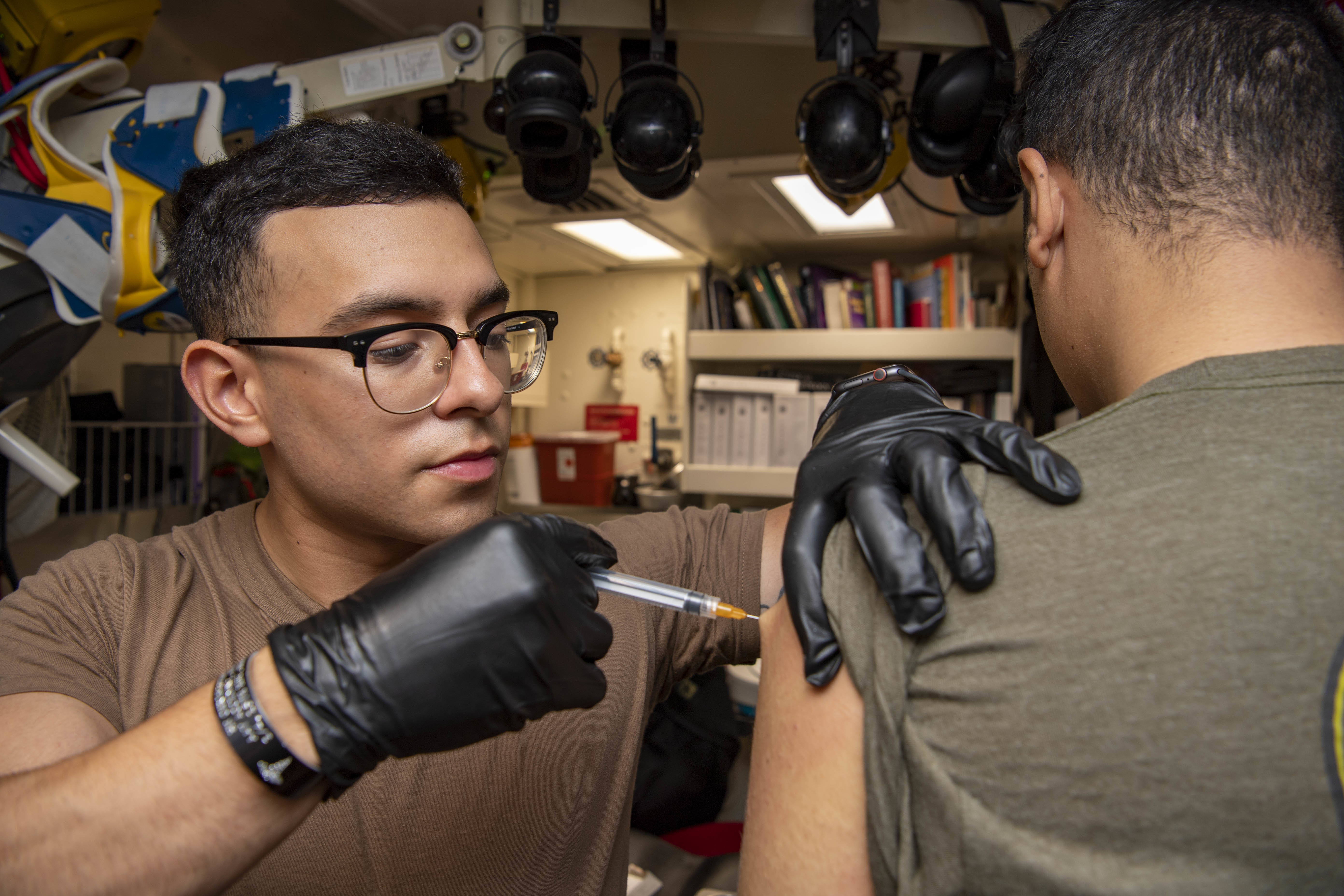
Sailors who are not granted an exemption for the COVID-19 vaccine will have five days to initiate the vaccination process before facing separation, according to new Navy guidance.
Active-duty sailors must be fully vaccinated by Nov. 28, unless they have a pending or approved exemption, according to previous naval guidance. Fully vaccinated means they are two-weeks-post the second shot of the FDA-approved Pfizer shot, the emergency use authorized-Moderna vaccine or the single-dose Johnson and Johnson version.
In order for active-duty sailors to meet this deadline, they would have needed to receive the last shot on Sunday. Reservists have until Dec. 28 to be fully vaccinated.
Under NAVADMIN 256/21, released Monday evening, service members who have an exemption or a pending one cannot be separated because they are not vaccinated. However, they can be temporarily reassigned.
If an exemption is denied, they then have five days after the notice to start getting vaccinated. If they still refuse the vaccine, they will be separated, according to the NAVADMIN signed by Chief of Naval Personnel Vice Adm. John Nowell.
“Notwithstanding the policy to separate Navy service members refusing the vaccine, each and every Navy service member shall be treated with dignity and respect at all times throughout the execution of the policies described herein,” reads the NAVADMIN.
It is unclear how many pending exemptions the Navy is considering. So far it has granted six permanent medical exemptions, which is an exemption from the mandate that is granted for a medical reason, like an allergy to an ingredient.
A temporary medical exemption might also be granted, although those are done for situations where someone has a time-limited reason for not receiving the vaccine, like being sick at the time of potential vaccination or facing upcoming surgery.
The Navy can also grant administrative exemptions, such as when someone is about to retire, or religious exemptions. But the Navy has not granted a religious exemption for a vaccination in the past seven years, USNI News previously reported.
The Navy has not released how many exemptions, outside of permanent medical ones, it has granted. It likely will not do so until after the Nov. 28 deadline has passed for active-duty sailors.
Sailors who are separated because they refuse the vaccine will receive not less than a general discharge under honorable conditions. This can result in the loss of some Veteran Affairs benefits, including the GI Bill, according to the NAVADMIN.
Those who refuse the vaccine are also not eligible for Navy education opportunities or tuition assistance, according to the NAVADMIN. The vaccine mandate applies to midshipmen at the Naval Academy and in ROTC programs, although they will follow their own governing instructions for adjudication.
Those who refuse the vaccine are also not eligible for reenlistment, according to the NAVADMIN.
It is not clear how many active-duty sailors could be separated. According to a Monday evening Navy news release, more than 99 percent of the service’s 350,000 active-duty sailors have received the first dose of the vaccine, while 95 percent were fully vaccinated.
It is unclear if the 5 percent, approximately 17,500 sailors, will be fully vaccinated by the Nov. 28 deadline. If so, that leaves a small percentage of active-duty naval personnel that could be separated under the vaccine mandate.
Vaccine hesitancy is not new within the Navy, as both the sea service and other services saw concerns about the anthrax mandate in the early 2000s, USNI previously reported. Vaccine mandates are also not new to the Navy, with the first one in the 1800s.





